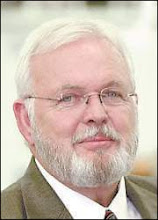
Make a special Abolition Day contribution to support the work of the National Coalition to Abolish the Death Penalty.
Act now.
Make the right move & click right here now for more infos.


If Willie Pondexter, Jr., is executed on Tuesday, part of the reason will be that the truth about his rehabilitation and dangerousness (or lack thereof) has been kept under lock and key. When it comes to assessing these factors of a person on death row, we should listen and give weight to the opinions of the prison officers who know him best.
But that doesn’t ordinarily happen because there is code of silence among corrections officers enforced by their supervisors and employers. The average correctional officer fears both the prison hierarchy — it could ruin his career or get him fired to say something out of line — and the corrections officers who keep prisoners and other correctional officers in their place through violence and other terrible means. The average correctional officer lives every day of his career with an absolute fear of speaking up.
I know because I worked in
I admire the few rare corrections officers who step forward and give decision-makers critical information, especially about clemency. In Pondexter’s case, one such courageous officer came forward and reported that Pondexter is not a danger to anyone, stays calm even in challenging situations, does everything that is asked of him and “could safely live out his days in a structured environment.” In fact, this correctional officer said, if Pondexter were a free man, he would be willing to give him a job working on his property.
This is the kind of information the Texas Board of Pardons and Paroles, the governor and the courts need to hear, but almost never do.
Significantly, this officer also said: “You would be hard-pressed to find anyone to say something bad about Pondexter.
If people are not talking, it is probably because they are scared to lose their jobs or scared of being written up.” This remark about the code of silence that prohibits corrections officers from speaking the truth, even when a man’s life is at stake, is consistent with all I know from my quarter-century in corrections.
There are likely dozens of other corrections officers who feel the same way and believe Pondexter’s life should be spared. They are not cooperating in Pondexter’s clemency case because they are afraid of being disciplined, losing their jobs, health care and pensions because they did what they thought was right, even on their own time. As a result, Pondexter is being denied the ability to investigate, gather evidence and present his case for clemency.
The recommendation of whether Pondexter lives or dies should be a decision for the Texas Board of Pardons and Paroles. The decision of whether to accept or reject that recommendation should be the governor’s. In a very real sense, however, this decision has been taken away from them, the legally authorized decision-makers, because the code of silence keeps critical information from the light of day.
It is an irrevocable wrong to send a man to his death without giving a fair hearing to favorable information about his demeanor, rehabilitation and lack of dangerousness to prison employees and other inmates. But that’s exactly what may happen on Tuesday.
McAndrew is the former warden of three Florida state prisons and an expert in prison and jail issues throughout the South, including


The bill has been stalled in the Senate Judicial Proceedings Committee for the last two years. O'Malley is hoping a state commission's recommendation for repeal will help persuade enough lawmakers to support a ban in what is building up to be a close vote. The committee hearing is set for Wednesday.
But the swing vote on the committee has been elusive, and O'Malley called on the religious community to petition lawmakers to support repeal on Monday.
Watch the video here. Unmasking Capital Punishment: A Wave of Executions, The Yomiuri and
Unmasking Capital Punishment: A Wave of Executions, The Yomiuri and David McNeill and the Yomiuri Shimbun
Introduction
One morning this September, Mantani Yoshiyuki, Yamamoto Mineteru and Hirano Isamu were told by prison wardens they would shortly be dead. As is common under
TALLAHASSEE | When all was said and done, the dozen speakers at this year’s Florida Respect Life Conference in Tallahassee offered participants inspiration, education and affirmation, with a special emphasis the groundbreaking 1968 declaration, “Humanae Vitae,” for the occasion of its anniversary.
Here is what some of the speakers and participants had to say – in their own words... :
http://www.thefloridacatholic.org/rop/2008_rop/2008_roparticles/20081015_rop_rl_said_5.php
.

New Mexico Gov. Bill Richardson said Monday he has softened his stance on the death penalty and may sign a repeal bill if it reaches his desk. The Legislature is considering a measure that would abolish capital punishment and replace it with a sentence of life without the possibility of parole.

"An execution is not simply death. It is just as different from the privation of life as a concentration camp is from prison. It adds to death a rule, a public premeditation known to the future victim, an organization which is itself a source of moral sufferings more terrible than death. Capital punishment is the most premeditated of murders, to which no criminal's deed, however calculated can be compared. For there to be an equivalency, the death penalty would have to punish a criminal who had warned his victim of the date at which he would inflict a horrible death on him and who, from that moment onward, had confined him at his mercy for months. Such a monster is not encountered in private life."
Albert Camus---"Reflections on the Guillotine, Resistance, Rebellion & Death" (1966)

